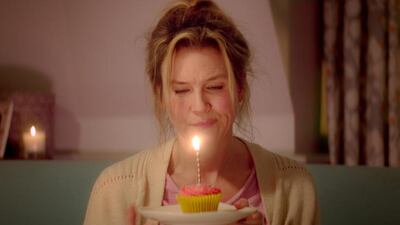The figure of the unmarried woman in our societies has always been a controversial one. This weekend the Christian world is marking the occasion of Easter. In the Bible, Mary Magdalene was a central witness to the crucifixion and is also crucial to the Christian story of the resurrection. A film was recently released in time for Easter exploring her life and role.
In Christian art and stories, descriptions have emerged about whether or not she was a fallen woman, even though there is no mention of this in the Bible itself. I don't know the answer but it does point to a consistent fact about how we see unmarried women: we find them troubling. Single women are too often re-cast in ways that fit into stereotypes that the only way a woman can be good and fulfilled is via marriage. And the woman deemed to be the worst offender among them all is the spinster.
Just think of the word spinster itself and you might imagine an old, withered, miserable woman. The word itself has connotations of failure and despair. We talk of women “on the shelf” or “past their sell-by date”. Compare that to the male equivalent of the spinster, the bachelor, which comes loaded with the flavour of freedom, delight and even a certain allure.
In the Quran we have the interaction recounted between Prophet Solomon and Bilqis, the Queen of Sheba. She is depicted as a single woman, strong-headed and wise. She is a ruler by consent and by all accounts, much respected by her male courtiers, as well as by the prophet himself. In subsequent stories told about Bilqis, much is made of whether she ultimately married Prophet Solomon. Perhaps she did, perhaps she didn't. But again that compulsion rears its head – that the only suitable destiny for women, no matter how successful or revered, is to be married.
___________________________
Read more from Opinion
Sholto Byrnes: A godless society runs the risk of failing to understand its history
Rashmee Roshan Lall: The story of Alfred Nobel should sound a warning for Zuckerberg and his legacy
___________________________
I should say at this point, as a married woman with two children, that I think marriage is rather lovely and that those who want to be married should be fully encouraged and supported. And I must admit to playing matchmaker at times. But the issue is that the burden of marriage, its success or its failure and its benefits are all laid squarely and solely on the shoulders of women. If a woman is unmarried then she is deemed a failure because her ultimate role is that of a wife and if she is not a wife then we are troubled by what is wrong with her.
In recent years, the average age of marriage has been rising globally, thanks to a combination of more women choosing their own partners and pursuing further education and careers. Ensuring everyone in society is developing and using their talents for the greater good is fantastic. But one outcome of this is a mismatch of marriage expectations between men and women. This new cohort of women are expecting prospective grooms to match their ideas of changing gender roles, especially when it comes to marrying men who see them very much as peers and life companions, rather than as trophy wives or household managers.
This has led to a generation of women around the world who prefer to remain unmarried rather than acquiesce to marriage to someone they feel is incompatible with them. Many of these women would like to marry and in this we should support them. But they do not want our pity and do not see themselves as failures. This so-called spinster generation is a source of terror for traditional attitudes. That’s because this "crisis of marriage" is too often cast as a crisis of women, rooted in our misguided notion that marriage is only a woman's responsibility, that the responsibility for marriage and for its success lies with them and that a woman who is unmarried is a failure. Surely men want to marry as well? Instead of maligning women who refuse to "settle", shouldn’t we instead be asking men to step up?
Shelina Janmohamed is the author of Love in a Headscarf and Generation M: Young Muslims Changing the World

